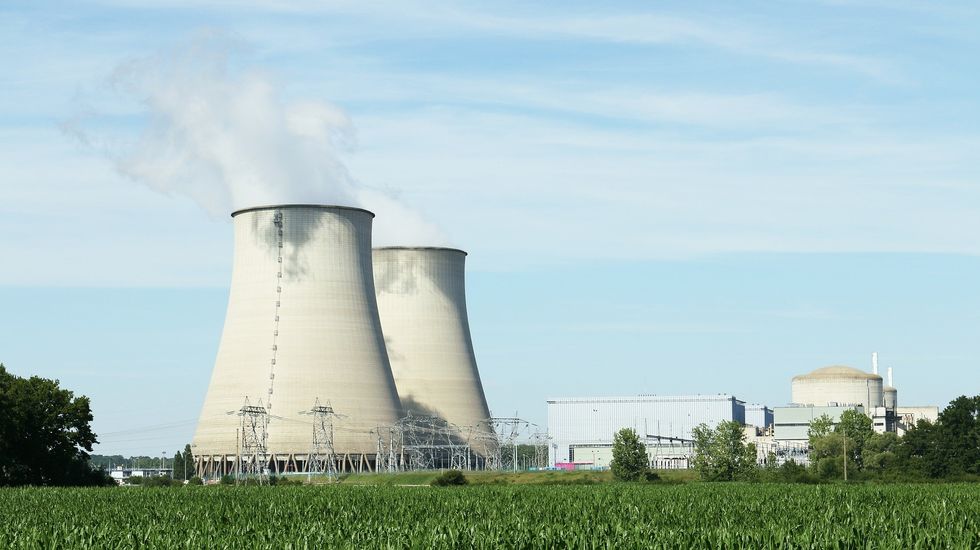Now, it is more essential than ever that we as humans believe the scientists who attest to climate change and speak up in favor of policy intended to ameliorate the crisis. So, why do so many people in America and around the world deny climate change?
It's science 101: debates about a hypothesis can exist indefinitely. It gets even more complicated when you try to separate theory from fact. Global warming is a scientific fact. There is evidence to prove that the world's global temperature has increased significantly in the last century. Anthropogenic climate change is, however, still a scientific theory. Although huge numbers of scientists attest to its validity, it's standing as only a "theory" leaves room for denial and disregard. In a Forbes article, Marshall Shepherd cites a 2011 study published in the Journal of Risk Research asking why members of the public held such strong opinions opposing theories scientists largely agreed upon.
"They find that something called "cultural cognition of risk" helps to inform individuals' beliefs about science, consensus, and related processes. They point out that a collection of psychological mechanisms allows some people to selectively accept or dismiss scientific information in ways that fit with others. For example, though a large percentage of scientists might conclude that anthropogenic climate change or vaccination denial are threats, cultural cognition of risk might cause a person to believe a smaller minority of scientists that align with their perspective," Shepherd writes.
Listen to his TED Talk here.
So, it's psychologically sound for the denial of climate change to be so common. However, we must transform our social narratives to include climate change in order to solve the problem. Without brutal honesty and frequent reminders about the problem, humans simply will not find the time to care about climate change despite its relevance and urgency. We all get overwhelmed with work, school, family, and friends. This certainly isn't to say that people don't care. Recycling rates have been approximately tripled since 1990, according to this EPA information. And plenty of people have adapted their lifestyles to reduce their plastic usage or even to go completely zero-waste.
Nonetheless, the changes in society and policy that are necessary for reducing our impact on the planet are not taking place. Stories in the media concerning the deaths of whales and the melting of ice caps spark fear in many people, yet they're issues that seem distant and unsolvable. People vote for candidates and bills that set us even further back and pay no thought to the fact that those politicians don't see our survival as a priority. Even the 2018 IPCC report's 2030 deadline was not monumental enough to create the broad scale change that we need to see to reduce our carbon emissions by then. Already phased out of the media, the report's findings are hardly present in anyone's discourse just five months after its release. So how is the public supposed to care about the topic when we don't even talk about it on a daily basis?
In order to make policy changes that are imperative to the transition to sustainable production methods and the reduction of our carbon emissions, we must include the topic of anthropogenic climate change in our social and daily narratives. Without constant reminders about the problem and discussions about logical solutions, no change will be made in policy or industry. So, don't be afraid to talk about climate change in any setting, with anyone or at any time. There is never a bad time to bring up global climate change as a real threat and a problem that we must turn our attention to. The focus should be on the big issues; keep climate change in mind as a factor in every aspect of your life and advocate for the planet, who can't speak up for itself.
"We often assume that political activism requires an explanation, while inactivity is the normal state of affairs. But it can be as difficult to ignore a problem as to try to solve it, to curtail feelings of empathy as to extend them. . . . If there is no exit from the political world then political silence must be as active and colorful as a bright summer shadow." — Nina Eliasoph, "Avoiding Politics"
- No, Climate Change Is Not The Same As Seasonal Weather ›
- 10 Thoughts I Have When I Hear 'Climate Change Is A Hoax' ›
- The Trump Administration Is Missing The Point By Denying The EPA ... ›
- The Lack Of Discussion Of Climate Change In Mainstream Media ›
- Climate Change is REAL ›
- The Dangers Of A President In Denial Of Climate Change ›
- Climate Change Is Real And Your Denial Won't Change That ›
- The Ideology of Climate Change Denial in the United States ›
- Climate Change Denial ›
- The psychology of climate change: Why people deny the evidence ... ›
- Climate Change Denial | Psychology Today ›
- Climate change denial - Wikipedia ›
- The psychology of climate change denial | APS ›
- Why conservatives keep gaslighting the nation about climate change ›
- Why Do Some People Think Climate Change is a Hoax? ›































